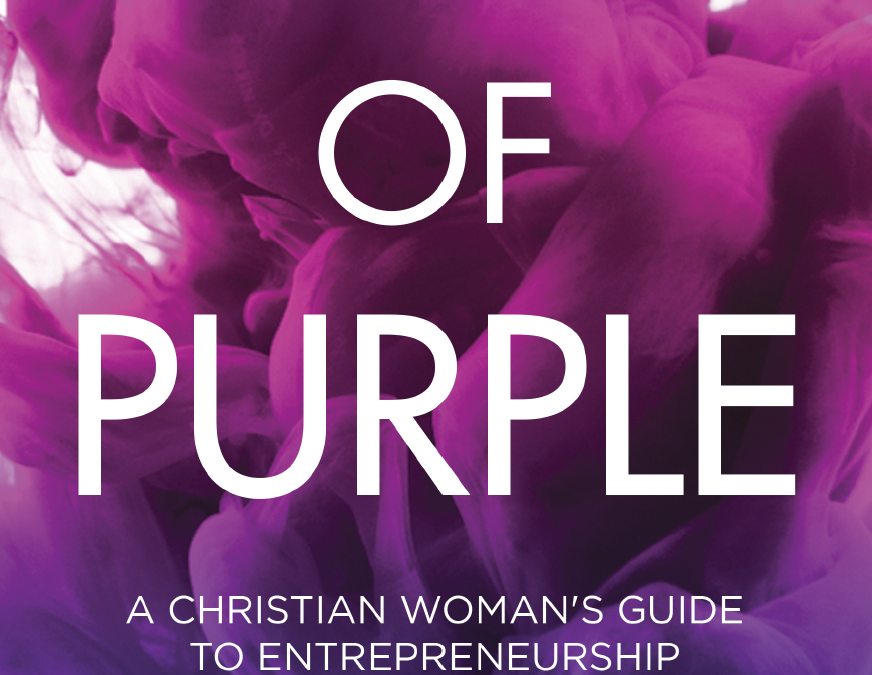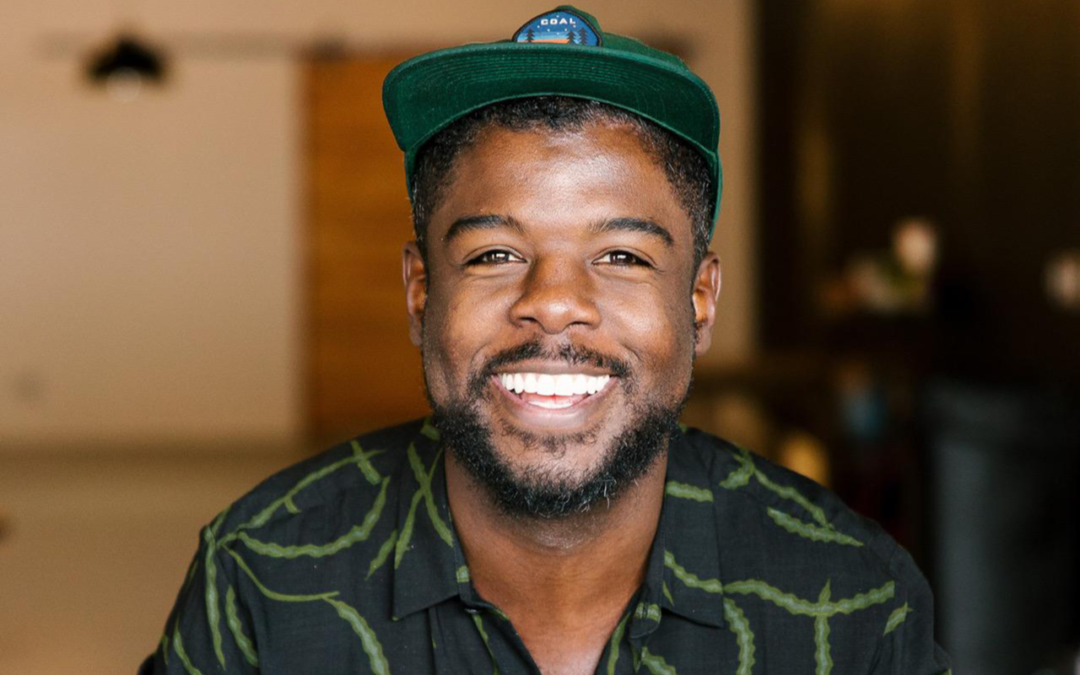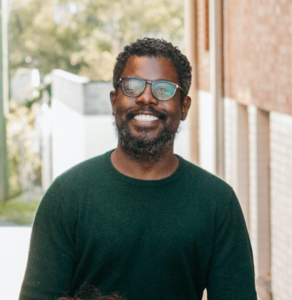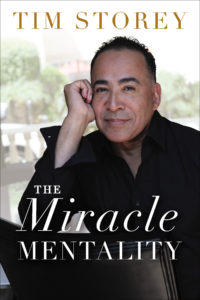
by Shari Noland | Sep 15, 2021 | Entertainment |
CeCe Winans released a new album in March called “Believe For It,” and she debuted a few songs at her first live, virtual special called “An Evening of Thanksgiving,” which aired in February.
Compassion International, a Christian ministry aimed at finding sponsors for children worldwide, has partnered with Winans for the event. She’s also a strong supporter of their work and has sponsored a few children herself. It’s a fitting partnership, given new songs are meant to encourage people, and that’s how she sees the work of Compassion.

CeCe Winans
“I get excited about partnering with organizations that are doing something that brings life, and Compassionate International does that. They make a difference, and they put a smile on kids’ faces who otherwise wouldn’t have hope. They bring hope,” says Winans. “They bring peace, food, water, clothing, and education. They give them something that will enhance their life, not just for a moment.”
I had an opportunity to chat with CeCe about her new songs, the virtual event, and her son taking on a new leadership role in their church.
You’ve had so much music success. Can you share what’s unique in the new music that’s coming out? What can fans look forward to?
It’s my first live record, and it’s music that encourages you to sing along. I think that’s something that people can look forward to. I’m doing a lot of songs that maybe you’ve heard before, maybe not, but I know that a lot of people have sung them in their churches. I wanted to create something that people and churches and everybody could sing along with. So it’s definitely a CD that’s filled with praise and celebration. Everybody needs some hope right now.
Tell us about the creative process during the making of your new album.
I’ve always determined songs by how they’ve ministered to me. I believe that if it hits my heart, it’s going to hit other people’s hearts. But the title of the record is called “Believe For It.” And this was the last song that came in when we decided we had all of our songs, but we felt something was missing. We really liked it [the album], but it seemed like we needed something else with the theme or something that will kind of, I don’t know, just put us in the frame of mind that we need to be in.
And my producers, Kyle Lee and Dwan Hill, got together, and they started writing with another young man, and they came back, and they played one song for me, and it was a good song. And I was like, that’s good, but that’s not it. And we kept going because, again, we had a strong record already, but we all kind of agreed that we needed something else. Another part of the puzzle was missing. And then they came with the song, Believe For It. And when I heard it — that’s it! That’s it! We all agreed, and I even did some writing on it to finish it up. But it is just the message of hope that everyone needs to hear. It doesn’t matter who you are, where you come from. You need to brush yourself off, brush those dreams off and start to believe again.
You’re so passionate about the work of Compassion International. Have you ever sponsored a child?
I’ve been sponsoring kids for years. And you go into this thinking you’re going to be a blessing to them, and you WILL be a blessing to them, but it ends up coming back to your life in so many ways. I know my kids are blessed.
Giving blesses your life. When I went to visit some of these kids years ago, and I saw the level of poverty that they lived in, first of all, my heart was just broken. I mean, they walk miles and miles for dirty water, contaminated water. I’m talking 10 miles.
And then you see where they live. And the first thing you realize is, “What am I complaining about? Why do I have to complain about anything?” They had this joy on their faces. And so when I came home years ago, I told my kids, “Oh no, no, no. We are going to live our lives differently.” And they were probably looking at me like, “Mom, what are you talking about?” You have to live a whole different way. Because of that, I know I’ve been blessed. I get excited about compassionlive.com. I pray that everybody will tune in, but not just tuning in, go and sponsor a child because even coming out of 2020, people who are brokenhearted, people who have lost their job, people who need major blessings in their lives, I’m telling you the way to break through is to give.
I understand your son is taking on more of a leadership role in your church, Nashville Life Church in Nashville, TN. What does that mean to you personally and to your family?
My husband and I started this church eight years ago, and it was birthed really through my son and his friends. When we started, it was all millennials, and our church is filled with millennials. And then my husband and I looked at each other and said, “Really, God? You want us to pastor?” We’re like, “Okay, here we go.” But my son started with all of his friends, and God just did work in my son’s heart. And he started witnessing and getting people to feel with the Holy Spirit. Leading people, should I say, to be filled with the Holy Spirit.
It started in my home with 35 people. And the Lord told my husband when we started eight years ago that my son would pastor. So we were the founding pastors, and my son has been pastoring along with us all of these years. The transition that we made three weeks ago is him being lead pastor, and now we’re the founding pastors. It’s just exciting because even within those three weeks, it’s like growth is happening the way he’s anointed to do it. And my husband and I looked at each other and said, “Wow, thank God. We at least carried it for eight years.” We didn’t make it work. We knew that we were in the will of God doing what we did, but we knew it was always about him and this generation.
It’s not like we’re retiring, but we are definitely in the background encouraging, pushing him, and just covering him. It’s exciting to see and not only him, but all the young people, our staff, are taking it over, and they’re the Joshua generation. It’s time.

by Shari Noland | Sep 8, 2021 | Commentary, Headline News |
Tim Storey on getting over challenging interruptions in your life.
When Tim Storey met with Quincy Jones to collaborate on a creative project 25 years ago, he got an unexpected challenge to create his own miracles.
“Whatever ideas you come up with, this is the no-fault zone,” Storey recalls Jones telling him that day, “In this zone, just be miraculous. Any idea you come up with, there’s no judgment here. Now, tell me what you think.”
Storey says that for a moment, he almost forgot that he was sitting with Jones, a Grammy Award-winning songwriter, record producer, and filmmaker in his Beverly Hills mansion.
“[It was like] a river of creativity got released,” Storey, recalling the experience, told Urban Faith.
In his latest book, The Miracle Mentality, Storey, now a pastor, life coach and motivational speaker, channels that experience as he explains how miracles can help us get out of a bad situation, but also get us into a better place.
“We have to permit ourselves to be miraculous,” Storey says. “It’s okay to manifest our miraculous self. Many times, the church, or your parents, or your siblings can hold some people back from their creativity.”
Even before that meeting with Quincy Jones, the idea that we can accomplish miraculous things if we lean into what God has created us to be had been marinating in Storey’s mind.
Growing up in the church, Storey learned about miracles and faith.
As he began his research for the book he realized that many people talk about needing a miracle to get out of a bad situation but don’t always see that a miracle can get you into a better place.
In his book Storey covers parenting, love relationships, friends, work, career, money, and health. Here are six takeaways that could help us manifest our own miracles while navigating life challenges.
Activate the miracle mentality in your life
To activate the miracle mentality is to cooperate with who you truly are. Number one, you’re made in the image of God. According to the Bible, He says all these amazing things about us — we are fearfully and wonderfully made. Then it says that He’s the potter and we’re the clay, and He’s shaping us as seems best to Him.
Not only does He say that I’m made in His image, but He’s also saying that He is shaping me. I feel that the image is in me, but the Creator’s hand is also on me. What I’m doing is just cooperating with my Creator. Rather than hoping for miracles or trying to conjure up a mentality, I’m just cooperating with my Creator.
The Miracle Mentality When Life Dreams Aren’t Playing Out
In life we often have what I’ve been calling for 20 years a “life interruption.” And as you know, to be interrupted means to be disturbed. It means something barges in that we never ordered. It could be a divorce that someone didn’t ask for, an illness, a challenge with their children, a challenge with their family.
As a person who has been a pastor and a life coach for many years, I find that most people, when they have a life interruption, find themselves being interrupted by the interruption and not knowing what to do about it. But we can put ourselves into two categories: recovery and discovery.
Currently, I am going through recovery of something in my life, but it’s important that I don’t get so caught up in my recovery zone that I miss my discovery zone. My discovery zone is the unfolding of my beautiful life. The Bible says in Isaiah 46:10, “For God knows the end from the beginning, and he knows what is yet to unfold.” Too many people are folding. They’re folding and give up before they have unfolded. Don’t fold your hands and your dreams while you’re still unfolding.
The Miracle Mentality When You Are Suffering
My mother was 39 when her husband, my father, went to get food for her and never came back. He was hit by a man who ran a red light.
That changed her life forever. She was happy with this man, and everything shifted within moments. The reality is at that point, you have to go back to steps.
First, you have to sit again and learn and get educated. Then you have to stand in what you know. Then you need to walk out the principles daily. That’s where some people suffer. They do not take the time just to do the action steps every day. Well, how long is it going to take, Tim Storey? Just keep walking it out. And then what happens is you keep walking it out, you build your confidence. You begin to run. Run is a position of passion. What COVID-19 has done, it has taken the run out of most people.
Challenges like divorce could take the run out of you. We have to get to the sit, to the stand, to the walk. Get good at walking, and then many times running just will come naturally. You want to kick in the run. And then it gets even better. One more step. You’re running, and you think, “Oh, this is as good as it gets.” Nope, there’s another step. You can soar. Where you mount up with wings of eagles, and you begin to soar and do things like Ephesians 3:20 says, that are exceedingly, abundantly above all that you ask or imagine.
The Miracle Mentality When You Are Seeking a Soul Mate
Somebody taught us how life should be — that you should be married at this time and that you should never be divorced. The reality is that sometimes you have to shift your “satellite dish.” Wherever you put your satellite dish is what you pick up. If you shift it on “Everybody’s against me,” you pick that up. If you shift it towards, “I can’t believe I failed all through my twenties,” that’s what you keep picking up. We have to shift our satellite dish, and we need to begin seeing things differently.
Number one, I am a miracle. My life is a miracle. Secondly, I’m a miracle in motion. I said that to Oprah Winfrey. She loves that saying of mine — that you are a miracle in motion, because you’re a miracle. But you’re also a miracle in motion. You’re learning, and you’re growing, you’re evolving.
If you’re not in a relationship, you have to learn to embrace and be thankful for the miracle of you. And then, as you begin to understand your value, I believe that it will begin to draw people that understand your value — whether it be friendships or romantic relationships.
The Miracle Mentality When You’re in a Bad Relationship
Before we fold on any relationship, we need to check our state of mind. To quote Dr. Robert Schuller, “Don’t make big decisions in the downtime.” Before one tries to get out of a relationship, I always challenge them to check their state of mind. And as I teach in the new book, there are different states of mind.
There’s the mundane, which is like, “Oh, my life is just a habit.” There’s the messy. You don’t want to leave a good relationship just because you’ve got a messy mind. Then there’s the madness. So maybe the madness is in your mind, but maybe the madness is not in the relationship like you think. We’ve got to really check with the mundane side, the messy side, and the madness side and get back to the sober-minded side before you make the big decisions.
The Miracle Mentality When Raising Kids
One of the beautiful things about parenting is that we have the opportunity to be God’s hands extended. He is the potter and we’re the clay, and He shapes us as seems best to him. That is something that we are, as parents, trying to do from birth to at least age 18. We are doing our best to help shape and form our children in a way that’s best for their lives. It’s important that we continue to stay linked up to the Creator so we can move on His supernatural power as we’re rearing our children. When you’re not connected to the supply, to the source, that’s when you start to get frustrated and even exhausted at times in the rearing of children.

by Shari Noland | Sep 2, 2021 | Commentary, Headline News, Social Justice |
 Jemar Tisby generated a lot of necessary conversation about the intersection of race, social justice, and the global church in 2019 with his best-selling book, The Color of Compromise. With that book, he laid the historical foundation of racism in the church. In the last chapter of the book, Tisby shares practical tips for fighting racism. In his new book, How to Fight Racism, Tisby continues the conversation, but this time around he provides an actual framework that churches and Christian groups can use toward racial reconciliation.
Jemar Tisby generated a lot of necessary conversation about the intersection of race, social justice, and the global church in 2019 with his best-selling book, The Color of Compromise. With that book, he laid the historical foundation of racism in the church. In the last chapter of the book, Tisby shares practical tips for fighting racism. In his new book, How to Fight Racism, Tisby continues the conversation, but this time around he provides an actual framework that churches and Christian groups can use toward racial reconciliation.
“In a lot of ways, they [the books] pair together really well. Now, they can be read independently of each other. So, I don’t want folks to get scared if they didn’t read the first one. You can dive into the second. From my perspective, the second book is what I wanted to be the first book. I was really passionate about getting in there, getting involved in doing something about racism. But in conversations with publishers and advisors and things like that, it became apparent that we really needed to lay the groundwork for the problem of racism and white supremacy in this country. Especially as it relates to the church. And basically, diagnose the problem before we jumped to solutions,” said Tisby.
Tisby’s solution is built around a model he created called the ARC of Racial Justice. ARC is an acronym for awareness, relationships, and commitment. From Trayvon Martin through the Black Lives Matter Movement and even the tumultuous racial conflicts during the Trump presidency, many people have become more acutely aware of our country’s problems centered around race. But committing to developing relationships with people who may not have the same views as you do or are coming from a different cultural perspective and, in doing so, breaking down racist structures takes more of a plan for change.
“What I’m hoping for is that this sparks ideas for people to gather a group of folks around them and say, ‘Hey, let’s do something.’ And I am really looking forward to stories trickling in over the next year and two years or whatever, so that when we do the updated and revised version of How to Fight Racism, I can include stories from the field, so to speak,” Tisby said.
 So, what about Critical Race Theory (CRT) as a way to combat racism? CRT argues that diversity training and changes in the laws are needed to combat structural obstacles created by white people that make for an unequal playing field in our society when it comes to people of color. Some people believe that CRT is a huge threat to the church. Tisby doesn’t see it that way. He says people who are dismissing it are using an old tactic — from tactics during the Civil War, when pro-slavery people used terms like “carpetbaggers” and “scallywags,” to the Jim Crow segregationists’ labels of “outside agitators,” to modern usages of Red Scare smears of “communists” and “Marxists.” Now, the label is “Critical Race Theory” proponents and is being used by people whom Tisby says want to defend a racist status quo.
So, what about Critical Race Theory (CRT) as a way to combat racism? CRT argues that diversity training and changes in the laws are needed to combat structural obstacles created by white people that make for an unequal playing field in our society when it comes to people of color. Some people believe that CRT is a huge threat to the church. Tisby doesn’t see it that way. He says people who are dismissing it are using an old tactic — from tactics during the Civil War, when pro-slavery people used terms like “carpetbaggers” and “scallywags,” to the Jim Crow segregationists’ labels of “outside agitators,” to modern usages of Red Scare smears of “communists” and “Marxists.” Now, the label is “Critical Race Theory” proponents and is being used by people whom Tisby says want to defend a racist status quo.
“All of these things are about controlling the narrative. And what happens is, if I can use a label like Critical Race Theory, I can paint it as bad, slap you with it. Then I can put you in a box, put you on the shelf, and I don’t have to actually listen to what you’re saying about racism and white supremacy,” Tisby said. “What we have to do is not get distracted from the main issue, which is Christian nationalism. It has infected so many parts of the church in the U.S. and even beyond.”
Many white Christians don’t experience racism the same way as Black people and other people of color because the Christian nationalists are in their families, in their churches, and some cases, they’ve acclimated to that way of thinking. Tisby says it’s hard for them to see it as an urgent existential problem that the marginalized and oppressed people do. That said, he has noticed that the social justice marches and movements have had an impact. White women in particular, from a 30-something who teaches Bible study at a nursing home to 70-year-old women, have reached out to him via social media and seem catalyzed to start taking action.
“It might’ve had to do with the past year or two and what they saw, especially politically. White Christians are starting to realize, ‘Oh my, like these differences are real. They’re salient. They’re in my church. They’re in my family,’” Tisby said.
It’s no easy task to be as explicit as Tisby directs white Christians about calling out Christian nationalism and white supremacy in their ranks. We know how it’s infected historically and theologically what they do. He often praises Fannie Lou Hamer’s efforts, who became a nationally known civil rights activist after seeing a presentation about voting rights at her church. Tisby admires how she always connected her activism to her faith. With that in mind, what should Black Christian activists be doing now?
“We are going to have to protect our peace. We are living in perilous times right now. And I find myself even just scrolling through Twitter or social media and whatnot, that I’ve got to take breaks because the flood of negative news, the flood of anti-Blackness, all of that stuff is too much to handle all at once. So, we will have to cultivate communities that affirm our dignity, that affirm our being made in the image of God. You got to go out and seek it and find it.”

by Shari Noland | Aug 27, 2021 | Faith & Work, Headline News |
 In her new book, Seller of Purple, Dr. Tasha M. Brown lays out a solid framework for newbie women entrepreneurs.
In her new book, Seller of Purple, Dr. Tasha M. Brown lays out a solid framework for newbie women entrepreneurs.
Stepping out on your own and deciding to start a business can be daunting. Most people know going in that there’s going to be a lot of time, effort, money, and sacrifice to make your entrepreneurship dreams become a reality. And if you’re a woman who is juggling work and life balance, being an entrepreneur can sometimes have its own unique challenges.
In her new book, Seller of Purple, Dr. Tasha Brown lays out a solid framework for newbie women entrepreneurs. A seasoned entrepreneur herself, who has founded six businesses and two organizations, she weaves in her sage advice with biblical principles and role models. Urban Faith® had the opportunity to chat with Dr. Brown about her new book, her practical advice for budding entrepreneurs, and what we can learn from some of the women entrepreneurs in the Bible.
When should you not venture out on your own to be an entrepreneur?
People who really need to work a job, get their credit together. Or you need to build up some capital, save up some money. Because at the core of entrepreneurship is financial risk. If you’re not in a position to do that, if you need to feed your family, then maybe you need to work a little bit. It doesn’t mean that you can’t branch out into entrepreneurship later, but there are just some things you have to have in place.
Will you have to have a quarter of a million dollars to launch out?
No, not necessarily, but should you work towards having at least $200 to pay for the Articles of Organization. Yeah. And so there are some individuals who are thinking, “I just need to launch out. I’m going to give up everything and start being an entrepreneur.” That is quite possible, but it’s just a little easier if you can manage that financial risk by planning.
What organizations have you started?
I started the Women’s Leadership Network because I recognized a gap in leadership development for women in ministry. And so back from 2008 to 2011, I was working on my Doctorate of Ministry in Pastoral and Spiritual Care. And my thesis was around women in leadership or women in ministry navigating the leadership waters. It was my hypothesis that women did not have the same type of informal spaces to learn and grow as men. And so I wanted to create that space. And then most recently the Arise Prayer and Outreach Ministries.
You’ve got makeup and hair products in your portfolio. Why did you get in the beauty business?
In 2010, I was diagnosed with breast cancer. My sister was diagnosed in 2007. And so she went through her procedure in 2010. When I was diagnosed I did not have chemo or radiation, but I did have a mastectomy. And in 2011, I had what’s called an oophorectomy. I had my ovaries removed. And so in 2011, I went into menopause. And as your body ages, as you age, there’s hair loss. I also had to take a pill daily to prevent the cancer from returning and that also caused hair loss.
And so when you are going through a stage of your body changing, you look for really quick ways to feel beautiful. And so I already was in the space of having a body that was aging well beyond my 35 years of age when I was diagnosed. And so it was at my 40th birthday in 2015, that I was with my cousins and I told them that I would use mascara and edge control to cover up my edges. And I was like, “We need to create something. We need to create something.” And Dem Edges was born. Dem Edges Tinted Edge Control. And in 2016, Dem Edges was brought to the marketplace. But I didn’t want to be a one-trick pony, so I worked with someone to get a lipstick line. So it came really out of a space of being a breast cancer survivor, wanting to feel beautiful and I didn’t see things out there that really would help me.
How do you keep your faith when it comes to starting something new? Is it tough when sometimes it works and sometimes it doesn’t?
Initially, it was. In the beginning, I just couldn’t understand because I felt like I had this vision. I felt like God was leading me in a particular direction. But on the other side of those experiences, I recognize that number one, it was really important for that to happen, the experience to occur. Because in that failure was a seed, a seed of success. In that failure was a seed of wisdom, a seed of knowledge, a seed of information. And so that failure provided so much data that informed the next steps. I mean, it’s the same thing as an inventor or even someone who is in a lab, a chemist. They’ll try different things and learn what not to do. What do I need to pull back on? What do I need to add more of? And so I’ve just learned through my walk with the Lord that there is seed in that failure. And then the second thing I learned is that God is not bound by my time, just because I think it needs to happen the first time out the gate, doesn’t mean that God is like, “Yeah, it does have to happen the first time out the gate.” Sometimes I’ve got to take a couple of laps around, but I’ll still get that wind. So I just have to trust God’s timing in all of it.
What went wrong?
Small things got us ensnared, like not filing the annual report, and just not having a business process in place. Our heart was in the right place, but we didn’t have the business acumen. We didn’t have the tools. Just not having the knowledge to keep it going.
If you could go back to when you started your business, though, what advice would you give yourself?
I would tell myself it’s a marathon, not a sprint. There is such a misconception that you become an overnight success and that people are just exploding on the scene. Well, a lot of preparation goes into that moment. And so recognizing that you may have some success right out the gate, but you have to keep planning for recurring success. It’s the long game that really works. It’s not, “Man, I did $75,000 in sales. That’s great.” And then you stop. Well, no, you gotta keep going. And so to understand and not get seduced in the trap of the immediacy of the instant gratification, but to really look further and to plan for the long haul. That’s what I would tell myself.

by Shari Noland | Jul 14, 2021 | Headline News |
 It could be daunting to take over the reins as lead pastor for a church your famous parents planted in 2012, but for Alvin Love III, 35, it was a natural progression that was initially inspired by a powerful encounter he had on a visit to Melbourne Life Church in Australia.
It could be daunting to take over the reins as lead pastor for a church your famous parents planted in 2012, but for Alvin Love III, 35, it was a natural progression that was initially inspired by a powerful encounter he had on a visit to Melbourne Life Church in Australia.
“It was something that was just surprisingly personal and I guess invasive a little bit. I felt like God was looking at me and only me. And that was the first time for me to where I just felt that much attention and that much focus from God and it stopped me in my tracks. I was only planning on staying in Australia for three months. I decided to stay nine months because the discipleship course that the church offered was a nine-month class,” said Love.
From that encounter, Love began sharing his experience with his friends and family and what he felt was in his heart. He learned that a number of his friends were also taking steps to a deeper connection with God. Over the next year, pastors and leaders from Melbourne Life Church came to Nashville and ministered to him and his friends at his parents’ home. It was their ministry that launched Nashville Life Church with 38 members and Pastors Alvin Love II and CeCe Winans as Senior Pastors. Now, in 2020, with about 400 members, he and his friends are leading the congregation. Although some changes are happening, they are learning as they go.
“I’m very different from my parents, but our church has been a collaborative effort. My dad and mom brought me pretty close to the core of what was happening. So though I was never the leader from a governmental and even spiritual point, I’ve always had a prominent voice in the building of the culture and what we have. I think the change is less because I’m in charge and more because I’m evolving and we’re getting better and better,” said Love.
It’s a multicultural church and very diverse in a lot of ways; not just racially, but politically, philosophically, and economically. As would be expected, that naturally has caused some division within the church that Love has had to address head-on. Rather than pick a side or using his platform to speak politically, he emphasizes not letting politics divide the church.
“There’s always been Democrats and Republicans. There’s always been all types of people, and that’s okay. I don’t think that your Christian faith has to dictate where you lean politically, however, as believers, we should never let politics serve as a tool to divide the church that God has called to be one,” said Love.
 So what does he believe they should be focused on? What Love says are the “basic beliefs — being a community of faith amidst the social, health, and political unrest. They had to do things a little differently with COVID. Previously, they’d gather more with 12-week small groups. Now, they’re focused on being a source of life and faith for people wherever they are, whether at work, in the neighborhood, or elsewhere. He encourages his members to reach out to people who aren’t part of their church community, or perhaps they’re at the edge of not believing at all.
So what does he believe they should be focused on? What Love says are the “basic beliefs — being a community of faith amidst the social, health, and political unrest. They had to do things a little differently with COVID. Previously, they’d gather more with 12-week small groups. Now, they’re focused on being a source of life and faith for people wherever they are, whether at work, in the neighborhood, or elsewhere. He encourages his members to reach out to people who aren’t part of their church community, or perhaps they’re at the edge of not believing at all.
“Our faith can be that boost they need to come closer to God. I think fear is at an all-time high. I think suicidal thoughts, and mental illness is at an all-time high. And that’s what we’re seeing in our own city. And I think, if nothing else, just the idea of having faith and believing that things are going to turn around and believing that God is still in control and he still loves us, “ said Love.
Love says even as a pastor he has been affected by the woes of 2020 — the isolation, the discouragement, and looking at an Instagram feed and only seeing re-postings of shootings, and deaths, and COVID numbers going up. A lot of the depressing news happened in the months leading to him transitioning as the senior pastor. Not to mention, he had to navigate CDC guidelines for churches and determine whether they should even meet in person. He gets what people are feeling, but he’s trying to lead by example.
“I have been hit by pressures, and I’ve been vulnerable to anxiety, but it’s the fight to stand on the rock of God’s Word that has allowed me to not only still be standing, but to still be thriving, and to be able to preach, and to be able to live life and have joy is a testament that this works, God works. And the Holy Spirit is definitely a sustainer.”







 So, what about Critical Race Theory (CRT) as a way to combat racism? CRT argues that diversity training and changes in the laws are needed to combat structural obstacles created by white people that make for an unequal playing field in our society when it comes to people of color. Some people believe that CRT is a huge threat to the church. Tisby doesn’t see it that way. He says people who are dismissing it are using an old tactic — from tactics during the Civil War, when pro-slavery people used terms like “carpetbaggers” and “scallywags,” to the Jim Crow segregationists’ labels of “outside agitators,” to modern usages of Red Scare smears of “communists” and “Marxists.” Now, the label is “Critical Race Theory” proponents and is being used by people whom Tisby says want to defend a racist status quo.
So, what about Critical Race Theory (CRT) as a way to combat racism? CRT argues that diversity training and changes in the laws are needed to combat structural obstacles created by white people that make for an unequal playing field in our society when it comes to people of color. Some people believe that CRT is a huge threat to the church. Tisby doesn’t see it that way. He says people who are dismissing it are using an old tactic — from tactics during the Civil War, when pro-slavery people used terms like “carpetbaggers” and “scallywags,” to the Jim Crow segregationists’ labels of “outside agitators,” to modern usages of Red Scare smears of “communists” and “Marxists.” Now, the label is “Critical Race Theory” proponents and is being used by people whom Tisby says want to defend a racist status quo.
 In her new book,
In her new book, 
 It could be daunting to take over the reins as lead pastor for a church your famous parents planted in 2012, but for Alvin Love III, 35, it was a natural progression that was initially inspired by a powerful encounter he had on a visit to Melbourne Life Church in Australia.
It could be daunting to take over the reins as lead pastor for a church your famous parents planted in 2012, but for Alvin Love III, 35, it was a natural progression that was initially inspired by a powerful encounter he had on a visit to Melbourne Life Church in Australia. So what does he believe they should be focused on? What Love says are the “basic beliefs — being a community of faith amidst the social, health, and political unrest. They had to do things a little differently with COVID. Previously, they’d gather more with 12-week small groups. Now, they’re focused on being a source of life and faith for people wherever they are, whether at work, in the neighborhood, or elsewhere. He encourages his members to reach out to people who aren’t part of their church community, or perhaps they’re at the edge of not believing at all.
So what does he believe they should be focused on? What Love says are the “basic beliefs — being a community of faith amidst the social, health, and political unrest. They had to do things a little differently with COVID. Previously, they’d gather more with 12-week small groups. Now, they’re focused on being a source of life and faith for people wherever they are, whether at work, in the neighborhood, or elsewhere. He encourages his members to reach out to people who aren’t part of their church community, or perhaps they’re at the edge of not believing at all.